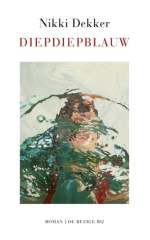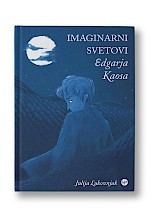View all filters
Clear

Pesce piatto
Translated from
Dutch
to
Italian
by Olga Amagliani
Written in Dutch by Nikki Dekker
8 minutes read

I mondi immaginari di Edgar Kaos
Translated from
Slovenian
to
Italian
by Giorgia Maurovich
Written in Slovenian by Julija Lukovnjak
11 minutes read
L’esilio
Translated from
Romanian
to
Italian
by Maria Alampi
Written in Romanian by Anna Kalimar
8 minutes read
Dopo l’ultima cena
Translated from
Portugese
to
Italian
by Francesca Leotta
Written in Portugese by José Gardeazabal
8 minutes read
Vita a metà
Translated from
Dutch
to
Italian
by Francesco Panzeri
Written in Dutch by Aya Sabi
8 minutes read